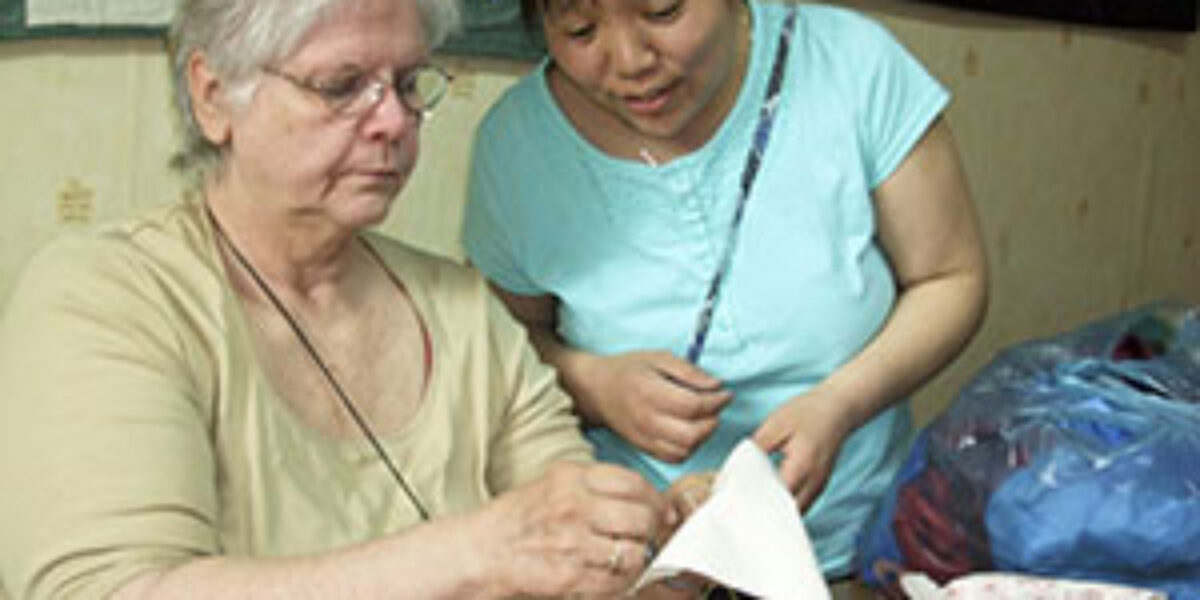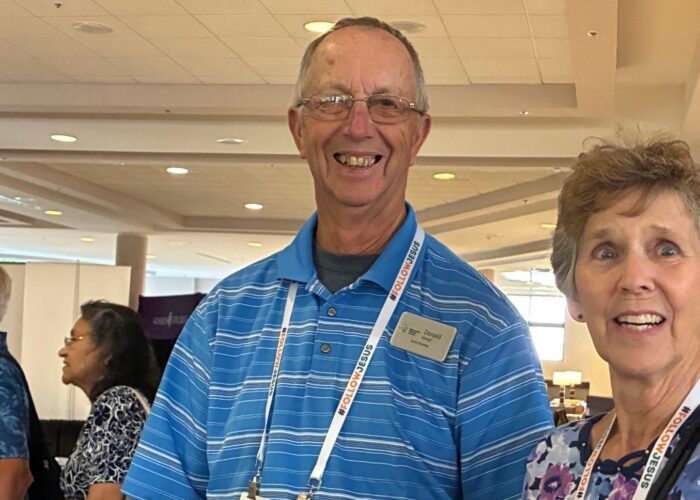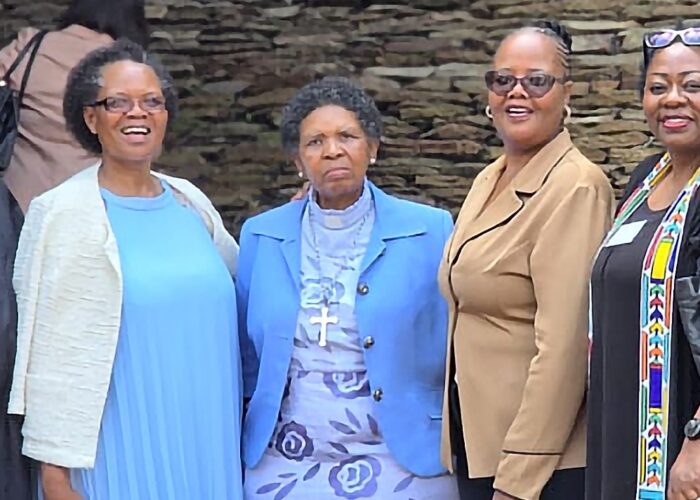ULAANBAATAR, Mongolia (Mennonite Mission Network) — Chantsalsuren Mavag, a Mongolian Christian from the capital city of Ulaanbaatar, had been praying. She wanted an opportunity to learn more about applying her sewing skills to quilting.
More than 6,000 miles away, a group of Goshen, Ind., quilters also was praying. They hoped for a way to visit Mongolia.
Carol Honderich, marketing assistant for Mennonite Mission Network, and three friends from the Maple Leaf Quilters – Edith Shanholt, Marie Troyer and Marcia Vierck – heard of the need for quilting instructors in Ulaanbaatar through Washington, D.C., quilter Maggie Ball, who has taught in Mongolia before. They prayed that God would enable them to make a trip.
When the four Americans met Mavag during their May 3-24 stay in Mongolia, Honderich said the women “felt a great spiritual bond.” Each party was an answer to the other’s prayer.
The women met at New Way Life Quilting Center, a grass-roots cooperative that empowers local women to develop their sewing skills into a means of income by making bags, ornaments and quilts to sell.
Through Mission Network and Joint Christian Services International, the American women instructed daily classes on quilting techniques, including piecing, appliqué, quilting and finishing by hand, as well as machine piecing.
Selenge Tserendash, founder and director of New Way Life, introduced quilting to the women of Ulaanbaatar in 2004. While studying English and computer science in the United States, she had attended several quilting exhibits. She resonated with the tradition and brought it home.
Tserendash had a vision for using available materials and skills in order to help fellow single mothers improve their lives.
“I noticed cloth in garbage cans, just blowing around,” she said, “and I saw it would be good to use to make quilts.”
Easy access to surplus material from a local garment factory, combined with sewing expertise refined at a young age, made quilting a natural fit for Ulaanbaatar women.
Quilting was also a helpful point of connection between the Mongolian and American artisans.
Said Honderich, “There is something universal about handwork: about creating something beautiful from nothing, about enjoying the process of stitching things together to make something useful, something that will last beyond yourself.”
Many of the Mongolian women are looking for international markets for their products and were eager to learn new techniques to polish their craft for professional retail. According to Tserendash, the American quilters were able to share many valuable skills, as well as provide some useful supplies not locally available, like rotary cutting tools.
Education did not go just one way. Troyer said the American visitors learned a lot about sharing. Both personal tools and space were in short supply in the basement where classes were held and the Americans were impressed by the collaborative spirit evident among the Mongolian women.
Even when the instructors suggested the students take home the individual squares they had completed, many of them combined their pieces into one large quilt.
The American and Mongolian quilters inevitably encountered cultural disconnects, like this one about individualism vs. collectivism. These were most successfully mitigated, said Honderich, as the women learned to know one another personally.
Marlow and Vicky Ramsay have worked with Joint Christian Services International through Mission Network and Mennonite Church Canada Witness since 1999. Marlow Ramsay observed that by the last day, there was certainly an affectionate rapport between the quilters. He said even though they didn’t have a lot of ways of communicating, they all seemed to truly care for each other.
Tserendash and Honderich confirmed this assessment. Speaking for all the Mongolian quilters, Tserendash said emphatically, “We have so much appreciation for them, for what they did.”
Honderich also shared her deep respect for Tserendash and her work: “At 34 she is an amazing example of a woman with vision, determination and an intense desire to help the women of Mongolia. She is a lawyer – she could have a prosperous career, even in the U.S., but she has chosen to stay in Mongolia and work for a better life for the women.”
According to Honderich, God’s presence was abundant throughout the trip, which was supported by Prairie Street Mennonite Church and Calvary United Methodist Church in Elkhart, Ind., and Eighth Street Mennonite Church in Goshen, Ind. Meeting enthusiastic Mongolian Christians, finding inspiration in daily devotionals and talking openly about their faith were some of the ways the American travelers sensed God’s love moving in and around them.
On the final day of the visit, the Mongolian women hosted a farewell ceremony for the Americans. Together, they partook in the Mongolian tradition of sharing a bowl of milk as a sending blessing. The spirit of this ritual transcended cultural and religious difference.
“For us,” said Honderich, “it was like communion.”
The American quilters certainly hope to return to Mongolia. “We’ll wait and see what God has in store,” said Shanholt.




